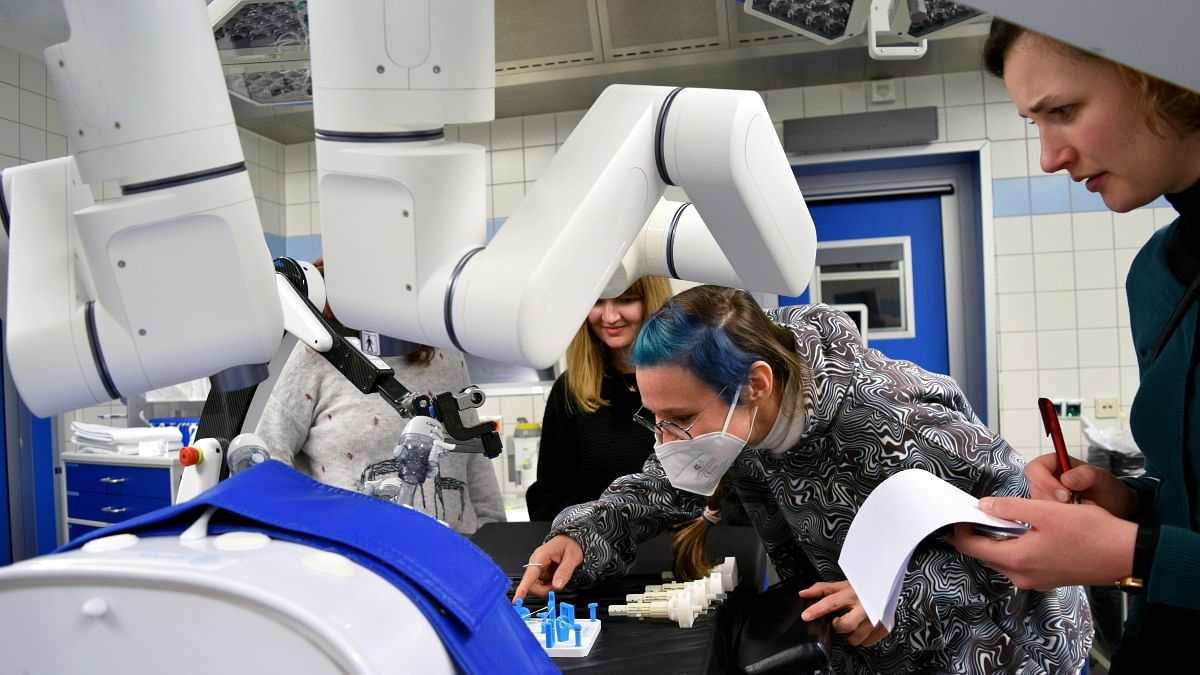While applying artificial intelligence (AI) demands careful consideration of ethical and societal implications, it also holds the potential to transform the way we work, improve service provision and enhance global development and our health and well-being.
International NGO Maternity Foundation and Finnish AI startup Neuvo Inc. Global are currently exploring this potential, joining up to develop an AI-powered service to help ensure safer childbirth in low-resource settings, an urgent goal with 800 women and 6,400 newborns dying every day from pregnancy and birth-related complications.
The majority of all maternal and newborn deaths are preventable if the women receive quality care. However, the world currently lacks almost 1 million midwives and many practicing midwifery do not have the necessary skills and knowledge. Therefore, finding innovative ways to build a larger and stronger midwifery cadre is crucial.
Combining AI with mobile technology to support midwives
Maternity Foundation has used technology for over 10 years to build midwifery knowledge and skills through the Safe Delivery App. The app can be a job aid and a learning and training tool for midwives and other healthcare professionals. It provides essential guidance on handling birth delivery and common complications through animated instruction videos and descriptions of practical procedures, among other features.
It is free and downloadable to use offline to ensure it is accessible to midwives working in poor and fragile areas where most maternal and neonatal deaths occur.
So far, the app has reached more than 435,000 healthcare professionals globally, and Maternity Foundation is continuously looking for ways to advance the tool further. For this purpose, Neuvo Inc. Global developed an AI-powered conversational smartbot – the NeMa smartbot – to be integrated into the Safe Delivery App, which instantly answers pregnancy and birth-related questions.
As time is of the essence in managing pregnancy and birth complications, the hope is that the NeMa smartbot will elevate the assistance provided to midwives and other healthcare professionals through the Safe Delivery App and ultimately aid safer births.
Evidence-based guidance
From the onset, it has been crucial for the Maternity Foundation and Neuvo Global Inc. to ensure that the answers provided by the NeMa smartbot were scientifically verified and based on audited clinical material. Therefore, content informing the smart bot’s answers had to be screened and cleared by Maternity Foundation’s clinical team and aligned with the national guidelines in India.
The smart bot is, in other words, developed in a closed system rather than generated via an “engine search” on the internet. It also works offline, ensuring it remains accurate in areas with limited or no connectivity.
The NeMa smartbot has been pilot-tested in two rounds over the past year in India with Indian authorities and support from the United Nations Population Fund and pharmaceutical company Organon. Maternity Foundation has traditionally worked closely with the Indian authorities on strengthening midwifery knowledge and skills in parts of the country that lag behind others, with maternal mortality being reduced at the national level.
Agile development
Data collection has been key during the pilots, demonstrating how smart bots are being used and helping us understand the needs of midwives and healthcare professionals. This data has been used to improve the answers and functionality of the smart bot. Multiple arrangements have been set up to ensure user data is anonymized and guarantee that access and usage of the platform are secure for all.
Around 130 midwives and other healthcare professionals in the state province of Punjab have been part of the pilots and overall, the feedback has been positive. After the second pilot, the feedback survey found that 84% of the 60 respondents found the NeMa smartbot provided them with the necessary answers always or most the time.
Additionally, in 14 in-depth interviews, all interviewees found that the smart bot had the potential to help them enhance their knowledge. Many users working in remote locations with limited internet connections also favoured the offline option.
“The thing I liked the most was that the answers were provided immediately by the NeMa smartbot. Sometimes when we search online, we do not get the right answers, but with the smart bot, we do,” one user said during the pilot evaluation.
So far, the NeMa Smartbot has not covered all modules of the Safe Delivery App but the full version will be tested in the second half of 2024. Based on feedback and lessons learned, Maternity Foundation and Neuvo Global Inc. will evaluate how to best leverage AI to ensure safer births in India and beyond.
This article previously appeared in the World Economic Forum.

